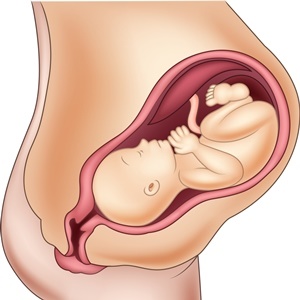
Carrying a baby as close to full term as possible is better for the baby's brain development, a new study suggests.
Protection against hazards
"What this study shows us is that every day and every week of in utero development is critical," said study senior author Catherine Limperopoulos. She directs the Developing Brain Research Laboratory at Children's National Health System in Washington, D.C.
"If at all possible, we need to keep foetuses in utero to protect them from the hazards that can occur in the extra-uterine environment," she said in a hospital system news release.
Read: Bilingualism starts in womb
The researchers said that during the third trimester of pregnancy, the foetal brain grows exponentially. The brain increases fourfold in size during this time, the researchers added.
The study included 75 preterm infants born before 32 weeks of pregnancy. The mean gestational age was 27 weeks. These babies weighed less than 1,500 grams (3.3 pounds) at birth. They showed no signs of structural brain injury.
Unique feature of study
The preterm babies were compared to 130 infants born full term at a mean age of 39 weeks of pregnancy. The mean birth weight was nearly 3,400 grams (almost 7.5 pounds), the study authors said.
Read: Womb transplant
A comparison of the infants' brains in the third trimester (the final 13 to 14 weeks of pregnancy) revealed that the premature infants had lower volumes in the cerebrum, cerebellum, brain stem and intracranial cavity.
The cerebrum is the largest part of the brain and controls speech, thoughts, emotions, learning and muscle function. The cerebellum is involved in learning, social-behavioural functions and complex motor functions, and also controls the balance needed to stand up and walk. The brain stem carries information between the brain, the cerebellum and the spinal cord, the study authors explained.
Read: Foetuses yawn in the womb
"What is really unique about these study results is for the very first time we have an opportunity to better understand the ways in which we care for preemies throughout their hospitalisation that optimise brain development and place more emphasis on those activities," Limperopoulos said.
The study was published in the journal Paediatrics.
Read more:




 Publications
Publications
 Partners
Partners










